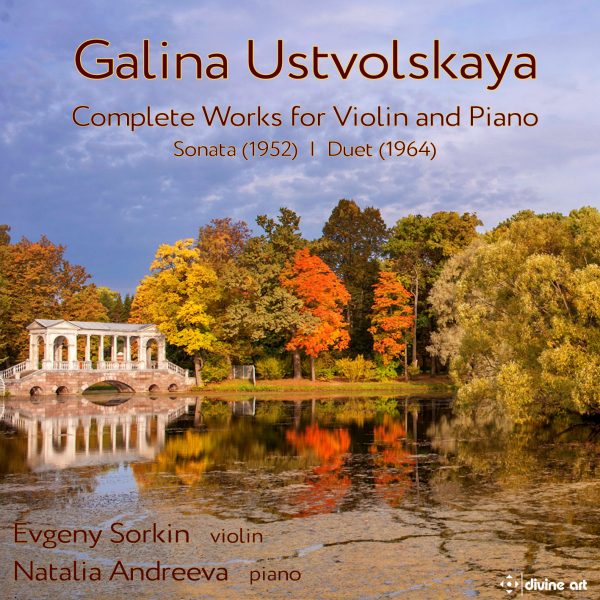New Classics
Russian composer Galina Ustvolskaya was born in Petrograd in 1919. She studied at the Leningrad Conservatory and as a postgraduate student was taught composition by Dmitri Shostakovich, who was convinced that her music would ‘achieve world fame and be valued by all who hold truth to be the essential element of music.’ Ustvolskaya maintained a close artistic and tender personal relationship with the great composer, though this seems to have ended acrimoniously soon after he proposed to her in the 1950s and her music subsequently retained little influence of his style. He would later acknowledge that she had influenced him, adding that he had failed to influence her. From the 1950s onwards, as a modernist living in the USSR, she had few public performances of her works other than patriotic pieces written for official consumption – only the violin sonata of 1952 being played with any frequency. Ustvolskaya said that there was no link whatsoever between her music and that of any other composer, living or dead. Among its characteristics are: the use of repeated, homophonic blocks of sound (which prompted the Dutch critic Elmer Schönberger unfairly to call her ‘the lady with the hammer’), unusual combinations of instruments, extreme dynamics, sparse harmonic textures, and the use of piano or percussion to beat out regular unchanging rhythms. Ustvolskaya wrote only 21 pieces in her idiosyncratic style, which still sounds ultra-modern today, but her music has become much better known recently. Most performers have concentrated, as on this CD, on bringing out the richness of the works and their innate lyricism. Natalia Andreeva is a Russian pianist of consummate skill who can express the music’s power and beauty of this music. Currently Lecturer in Piano at the University of Sydney, she has studied Ustvolskaya for many years and in 2015 released a highly acclaimed album of the complete solo piano music on the Divine Art label. She is joined here by the exceptionally talented Russian-born violinist Evgeny Sorkin to mark the centenary of Ustvolskaya’s birth on June 17 with these assured recordings of her Sonata for Violin and Piano (1952) and Duet for Violin and Piano (1964).
@divineartrecordingsgroup
A First Inversion Company
Registered Office:
176-178 Pontefract Road, Cudworth, Barnsley S72 8BE
+44 1226 596703
Fort Worth, TX 76110
+1.682.233.4978












